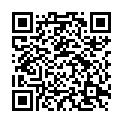|
|
|
| Module code: E2570 |
|
|
2V (2 hours per week) |
|
3 |
| Semester: 5 |
| Mandatory course: no |
Language of instruction:
German |
Assessment:
Written exam
[updated 08.01.2020]
|
E2570 (P211-0209) Electrical Engineering and Information Technology, Bachelor, ASPO 01.10.2018
, semester 5, optional course, technical
|
30 class hours (= 22.5 clock hours) over a 15-week period.
The total student study time is 90 hours (equivalent to 3 ECTS credits).
There are therefore 67.5 hours available for class preparation and follow-up work and exam preparation.
|
Recommended prerequisites (modules):
None.
|
Recommended as prerequisite for:
|
Module coordinator:
Prof. Dr. Martin Buchholz |
Lecturer: Prof. Dr. Martin Buchholz
[updated 10.09.2018]
|
Learning outcomes:
After successfully completing this course, students will be able to understand the connection between theoretical knowledge and practical application. In this course, students will be made familiar with the practical uses of various telecommunications technologies. A selection of technologies used in practice, ranging from wired transmission technology (xDSL) and near-field radio applications (RFID, near-field communications, etc.) to bidirectional satellite radio systems (DVB-RCS), will be presented and combined with the basic knowledge already acquired BY students during their studies. The targeted inclusion of exercises from different areas of system implementation will help students approach the development and application of new technologies with confidence. In addition to the technological requirements for implementing a telecommunications application, the special features of the application itself and the relevant standardization work will also be highlighted. Student will be able to identify connections between the goal of the application, its technological characteristics and the interests of the participants involved in the application´s implementation.
[updated 08.01.2020]
|
Module content:
Basic concepts, DSL, Digital Subscriber Line, RFID technology, RFID characteristics, RFID applications, ePassport, near-field communications, SmartCards, satellite radio, DVB-RCS, synchronization, norms and standards, interface descriptions, spectral compatibility on cables, initialization of communication links, protocols, protocol errors, error analysis, basic cryptographic methods
[updated 08.01.2020]
|
Teaching methods/Media:
PC, projector, blackboard
[updated 08.01.2020]
|
Recommended or required reading:
[still undocumented]
|


